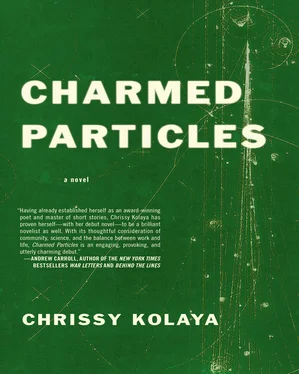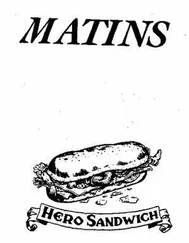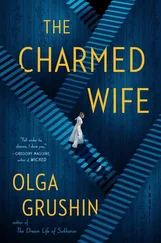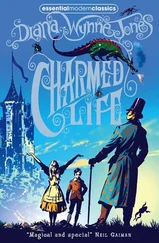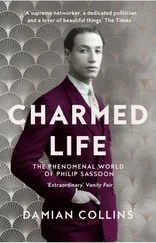Once they had seen out the last of the tour groups, Meena and Lily took seats on the limestone steps in front of the mansion to listen to the mayor’s speech and watch the ribbon-cutting ceremony, their skirts spread out over their knees, feet disappearing beneath the deep folds of the fabric. The afternoon sun was bright in contrast to the oppressive, Victorian darkness of the house.
Some of their classmates from the regular classes wandered the grounds carrying large turkey legs or American flags. A pack of teenage boys passed the house and looked up at Lily and Meena. “Hey, old-time lady,” one of them yelled. “You’re hot.”
Lily rolled her eyes. “Have you gotten your acceptance letter yet?” she asked Meena. Lily had been on a high since Thursday, when her acceptance letter from the Academy arrived. “I’m sure it’s on its way,” she continued before allowing Meena to respond. “Mr. Delacroix all but guaranteed you’d be accepted. I’ve been thinking about whether we should request to be roommates. On the one hand, we know we get along. But on the other hand, we might meet more people—”
Meena stopped her, turning to face her friend. “Look, Lily,” she began. “I haven’t wanted to tell you this.” She still didn’t, she thought to herself. Meena took a deep breath. “I didn’t apply,” she said, finally.
“What?” Lily asked, her brow wrinkled, eyebrows drawn together over the bridge of her nose.
“I didn’t apply to the Academy.”
“But why not?” Lily asked, incredulous. “It’s a tremendous opportunity.”
“I know it is,” Meena said.
“So you’ve been lying to me about this?” Lily asked. “For months now?”
“Not lying,” Meena corrected her. “I never said I was going to
apply.”
“You never said you weren’t,” Lily argued. “I thought we were both—” Lily thought for a moment, looking out over the paths that divided the grass into neat geometrical shapes. She shook her head. “I just…” She was unable to find her words. “I just… I can’t believe you’re going to throw away an opportunity like this. Do you realize how isolated you’ll be?” she asked. “The most interesting person to talk to for the next three years — until college, Meena — will be Tom Hebert. Have you thought about that?”
Meena looked down at her skirt, draped over the steps of the great house. There was a long, fraught silence.
“I thought we were going together,” Lily said. “Now it’s just me? Just I’m going?” Her voice was small and uncertain.
Meena looked up at Lily, who was now plucking at a loose thread along the hem of her skirt. As she watched her, Meena began, slowly, to realize that this smart and confident friend of hers was afraid. Afraid of doing this alone. Meena took her friend’s hand in hers.
“Lily. You’re going to be fine there on your own. Better than fine. You’re going to be amazing.”
Lily sat in silence for a moment, considering this.
“Without you, though?”
“You don’t need me,” Meena said.

Mayor Callahan stood at the microphone on the bandstand. Behind him, the Nicolet Community Band sat quietly in their seats, shiny brass instruments catching the gleam of the sun.
“While this community has, over the last year, found itself in conflict and disagreement over an issue of modern science,” he began, “we are pleased to come together here today as friends and neighbors to unveil Heritage Village’s most recent addition and to honor our country’s forefathers, who, like I said, fought for an ideal they believed in.”
The Custom House stood ready for its unveiling, a red ribbon across the front door. A reproduction of the Liberty Bell had been erected on its lawn.
In front of the entrance to the new building, Mayor Callahan and Mrs. Schuster, the director of Heritage Village, posed for photographers from the Herald-Gleaner with a pair of shiny, oversized scissors. When they had gotten the shot they needed, Mayor Callahan cut the wide red ribbon and stepped aside to welcome the citizens of Nicolet inside, the community band striking up a wobbly, uncertain version of “America the Beautiful.”
Outside, beyond the wrought-iron gates of Heritage Village, the traffic hummed along Homestead Road, the growl of a plane’s engine cut through the warm spring air, and the visitors tried hard to ignore the specter of the Research Tower rising up in the distance.
CHAPTER 25. Manifest Destiny
FOR ABHIJAT, THERE HAD BEEN A SLOW UNDERSTANDING AND A gradual acceptance that this was where his career would come, gracefully and respectably, if not as memorably as he had hoped, to an end. And he had surprised himself by responding to this acceptance with relief.
At first, he hadn’t known what to call it, this strange feeling of lightness, of freedom that had come over him. It was as though he had set down a heavy and unwieldy burden he’d been carrying for years.
It did not leave him all at once — he thought often, still, of what might have been. Some days he wondered if it might still be possible, one of the great prizes. But he had begun to grow accustomed to this new sense of peace that had come over him, to understand that it was valuable.
Fading slowly into the background was the pressure to produce, to publish, to chase, always, after the new, and it was liberating. Instead, he found that he enjoyed his quiet office, enjoyed thinking and writing about the things that had always piqued his curiosity, enjoyed his colleagues and his family.
He had, one morning, surprised Sarala, joining her at the table where she was finishing her morning tea. “Do you know that in a few weeks we will have been married for seventeen years?” he asked.
“Yes, that’s right,” Sarala replied, looking up at him curiously. It was not like Abhijat to remember this sort of thing.
“We should—” Abhijat began tentatively, watching her face, attempting to decipher what it was that a husband was expected to do in this situation. “We should have—” He paused. ( Yes , the look on his face said, I think this is right — proceed .) “—a cookout with friends?” His voice lifted at the end, as though attempting to protect himself by wrapping the suggestion in as much ambiguity as possible.
Meena, sitting across the table from her father, frowned, perplexed.
Abhijat looked at Sarala, who blinked and nodded slowly. “Sure. Yes,” she said, nodding again. “We could do that.”
Abhijat clapped his hands together. “Then it’s settled! I will begin the planning,” he announced, gathering his things from the table and bustling out the door to begin the day.

Abhijat had thrown himself into the idea of the cookout. He had prepared and sent invitations that read: “We invite you to join our family, the Mitals, to celebrate the seventeenth wedding anniversary of Sarala and Abhijat.” He’d invited Carol and Bob for Sarala, the Winchesters for Meena, and Dr. Cardiff for himself.
He’d made what Sarala was fairly certain was his first-ever trip to the hardware store and had come back with the trunk of their sedan tied open, bobbing up and down as he navigated the bump at the end of the driveway as slowly as possible. He had then (for the first time ever) knocked on the front door of Carol and Bob’s house and asked Bob if he might help Abhijat unload his purchase.
From out of the trunk came an enormous barbeque grill. Together, Bob and Abhijat rolled the grill behind the house and onto the patio, where Bob admired Abhijat’s selection. “The Performance Series. That’s a good model,” he said, nodding.
Читать дальше
